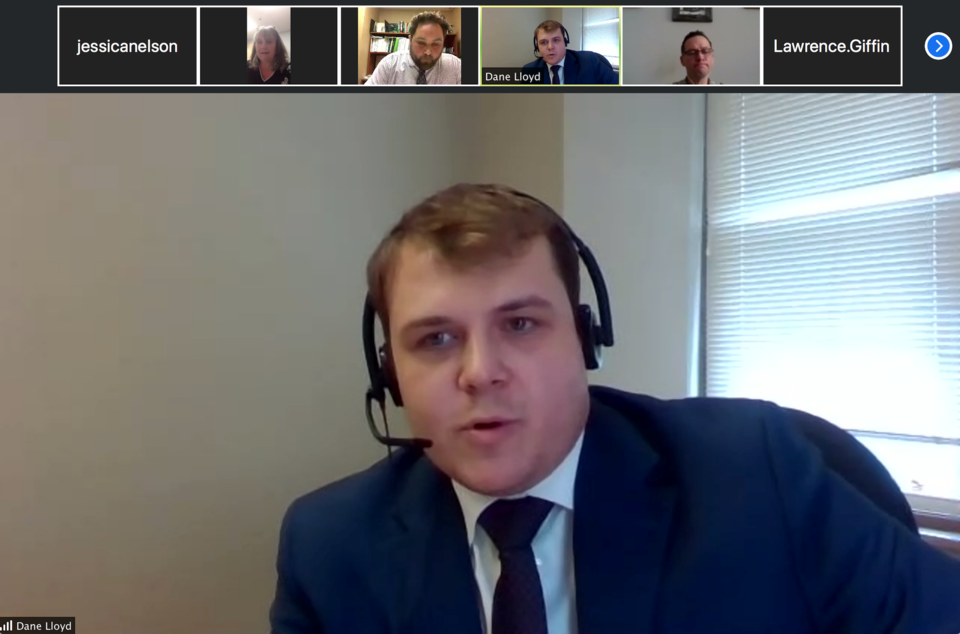The Morinville and District Chamber of Commerce was hacked last Wednesday during a virtual lunch event.
“I wasn't even noticing them entering, because there was no notification that they came in. That's how I knew that they actually hacked my Zoom because I was no longer the host,” said Roberta Pawluk, manager for the chamber.
On March 3, the chamber held a Federal Update Lunch featuring Sturgeon River-Parkland MP Dane Lloyd. The event was briefly interrupted by a screen-shared Google search of some, well, inappropriate content.
“Real-time, that screen was up for less than 30 seconds. It felt like it took forever for me to get it down because I was panicked, mortified, by the images,” said Pawluk.
“Zoom bombs” have become all too common in our virtual meeting spaces. A Zoom bomb occurs when uninvited individuals raid a Zoom meeting and screen share disturbing or disruptive content to attendees.
In normal unhacked circumstances, she has a virtual waiting room for people to be screened before they enter into the meeting. The hackers were able to take this feature down during the meeting without her noticing. She also usually has screen share turned off, which the hackers were able to turn back on to share content with attendees.
The only thing she didn’t have at the time of the meeting was two-factor identification, which she has now set up in order to prevent it from happening again.
Pawluk said she didn’t think the attack was politically motivated.
“I can see that being maybe what drew them to it, but it's hard to speculate,” she said.
Despite the disruption, Pawluk said feedback from the meeting has been positive.
“Everyone loved it, everyone thought (Dane Lloyd) was very well-spoken. And they thought that it was great content that he provided,” she said.
Lloyd spoke during the meeting about some of his concerns with the federal government, as well as what he thinks may be possible solutions for those problems.
One of his main concerns is that some of the money the federal government has put into the pandemic may just be sitting in people's bank accounts. Once the pandemic lifts, people will want to spend that money, which could increase inflation rates.
“Once the pandemic is largely behind us, which could be in the next six months, people are going to want to spend all of that money. And when you add $150 billion in consumer spending into an economy, on top of all the government stimulus and on top of the low interest rates, we could see inflation come back above the two-per-cent target,” he said.
Lloyd said the solution to inflation could be to encourage people to donate to charities through an additional one-time extra donation tax credit or by encouraging people to top up their tax-free savings account (TFSA). He thinks increasing TFSAs might encourage people to generally invest more, which may lead to more investment in industry – a real positive for the economy.
“We need to plan for, you know, how can we encourage people to use this money to the best of their ability to hopefully not lead to an inflationary situation?” he said.
There is a positive side to inflation, said Lloyd, and that is that traditional sectors are very strong.
“Copper prices are through the roof, lumber prices ... are through the roof. Agriculture goods are through the roof. Stats Canada is actually showing that the agriculture sector is outperforming – it is actually at 112 per cent of their pre-COVID capacity,” he explained.
However, if one looks at the big picture of inflation, Lloyd said the areas that are hurting are really hurting. Targeted sectorial support in areas like tourism, transportation, retail and hospitality might be the solution to some of those economy woes.
“We need to have more targeted sectorial support for these industries. Because if we have another six months to a year of this…we're not going to be able to survive,” he said.
“I think (targeted support) could be really valuable uses of money, but we know over the next few years, that the ability of the federal government at least to undertake large new spending program increases are going to be severely limited,” he said.
Lloyd also sees value in the government spending money on child care.
“I think if they were going to do a big program spend, it could be in terms of child care, but I think a lot of big spending ideas are off the table because they have spent so much money,” he said.
Lloyd said he sees a possibility in the near future taxes will be raised to pay for pandemic spending.
“As conservatives, we're looking to hopefully avoid raising taxes on Canadians, so we don't want to raise any taxes. We want to unleash our economic potential and that means by fighting for things like our resource sector,” he said.
The meeting was not recorded and Pawluk believes the hackers turned that setting off when they were in her account.
“There were 28 people that attended – that were supposed to attend (the meeting). There was a whole bunch of people that weren't. There were about eight unwanted guests,” she said.




